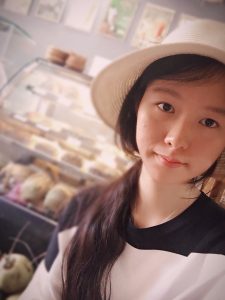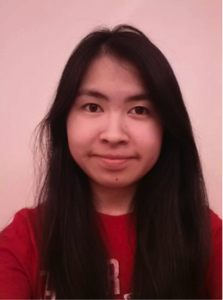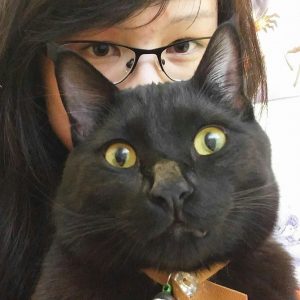Project Proposal & Progress
October is here and the season has changed. Although it is nice to look at the sight of trees in Autumn, we have not been able to take the time to appreciate it. Why? We have been busy getting a number of tasks done with this project!
The biggest task done so far has been our project proposal. Click here to see it.
What else have we achieved so far?
Click here for a pdf of our timeline.
Oct. 9-13:
Communicated with Community Partner (Joanne McKinnon) via email with which we
- Received the login and password for the Hastings-Sunrise Community Blog
- Obtained contact information of the community agency member that will be hosting the first workshop
- Confirmed the location and time (Monday, October 23rd at 5pm at the Hastings Community Centre) in which the facilitator training session will be held
Contacted Food Box Donors
- Contacted Greater Vancouver Food Bank via email on Oct.11, 2017. Awaiting response.
- Contacted Van-Whole Produce via email on Oct. 11, 2017. Awaiting response.
We asked them about the contents of the food box, as it is different every month for each agency. We will be using the responses from donors to better cater our recipes with the food provided by donors.
What’s Next?
Oct.16-20
Before the facilitator training session
Research Recipes
- Focusing on easy and cost-effective reproducible recipes at home
- 6 recipes in total
Plan: Each member will search for one recipe that includes the food items in the food box. The blog and recipe book will contain these recipes as a starting point.
Research Specific Cooking methods
- Food Canning
- Food Dehydration
- Food Preservation
Plan: These three methods will be included in the workshops. Therefore, we will research them by using online resources and published cook books to gain a better understanding before we help facilitate the workshop.
After Oct. 23:
Before the workshop
Food Knowledge Platforms and Recipe Publication
- Create Instagram and recipe email account
- Post recipes on blog and Instagram
- Compile previously researched recipes and draft a semi-final recipe book with a cover page
Plan: Access the HSCFN blog and create a tab for the recipes. We will also edit the recipes into a uniform orientation so that its format is consistent. The email account is where community members can send in their own recipes and/or ingredient substitution ideas for recipes, which will be added to the recipe section of the blog. The Instagram account will have posts that introduces the project, recipes, weekly food boxes, and produce information. As for the recipe book draft, we will use a photo editing software like Adobe Photoshop Online.
Participant Survey
- Create a survey that captures the success of the workshop
Plan: Make a survey format that is easily understood and answered using measures such as a ranking scale. We will utilize available resources to help us ensure that the survey is of good quality and is consistent in its questions.
Consent Form
- Consent form for the survey and for pictures to be taken during workshop for the food circle’s Instagram account and blog
Plan: Research the proper information from the Tri-Council Policy Statement: Course on Research Ethics to put into the consent form as well as the process in how the form is supposed to be given.
During workshop (date of workshop TBA)
- Take photos
- Conduct survey
Plan: Obtain a camera and print out the surveys so they can be handed out at the end of the workshop
After workshop (date of workshop TBA)
Results
- Compile survey results
Plan: Input the data into an Excel spreadsheet to better analyze and incorporate the feedback into the final deliverables.
Photo Publication
- Post on blog
- Post photos on Instagram
Plan: Create a photo gallery post on the blog to showcase the photos and upload a series of photos onto Instagram as well.
Final Deliverables
- Post photos on blog and Instagram
Plan: Create a photo gallery post on the blog to showcase the photos and upload a series of photos onto Instagram as well.
- Finalized Recipe Book
Plan: Continue using the photo editing software to finish the recipe book where feedback from the participants will be included. Send and confirm final version of the book with Joanne and the agency member for the first workshop before printing out marketable copies.
A Moment of Significance
What?
We went to our first meeting with our community partner thinking that we would get a clearer sense of what and how the project will proceed. However, we were left with confusion as there was a lot of information to take in and the task that was assigned to us during the meeting, the creation of a recipe book, was not what we had expected from the project information description. Due to the miscommunication between our group members and our project coordinator, we were not able to start on the project right away as several emails needed to be exchanged in order to clarify the project.
So What?
It caused a lot of concern among the group because of the unclarity between us and our community partner. Additionally, time was worrisome for us because we have limited time to facilitate the project and much of what was proposed during the meeting did not fit our course timeline, as most of the workshops were planned for December and early 2018. However, we did not immediately address these concerns, especially right after the meeting. After consulting our TA, we realized that instead of just listening and taking notes, we should have taken more of an active role by giving our input and ideas because this project also involves us and our actions count.
Now What?
In collaborative projects like this, it is important to have clear communication. To minimize miscommunication problems in the future, we should ask more questions if we’re unclear of our role and/or to follow up with our project coordinator on the same day as our interaction. That way both parties will be on the same page. Currently we are emailing our community partner when we have questions so we are not speculating on details of the project and can be as accurate as possible. This creates transparency between us and our community partner, thus both sides become aware of what the project plans are and what needs clarification. We have also been more communicative with each other, as group members, to ensure that everybody is on the same page on understanding the timeline of our project and with how we want to progress with the project.
From this experience, we can use the skills we have learned in our upcoming meeting and future projects to ensure that we are giving input to create a presence and know what the next steps are when we leave.
In addition, with the Asset-based Community Development approach, we would like our projects to become community-led so they can be sustained after our involvement comes to an end (Mathie & Cunningham, 2003).
Our group would like our recipe ideas to incorporate community knowledge so that they are more culturally appropriate and suitable to residents’ needs. A contributor to food insecurity is the difference in culture, as the method currently used is aimed towards Canadian values (Moffat, Mohammed, & Newbold, 2017). Some common ingredients in the North American diet, such as beets, can be unfamiliar to other cultures. Not knowing how to prepare or experiment with new food are barriers to achieving food security in a culturally diverse community like Hastings-Sunrise. However, cultural diversity can be achieved if there is transparency between the researchers as well as the community throughout the whole process of the project, which is typically absent in research practices (Bradley & Herrera, 2016).
References
Bradley, K., & Herrera, H. (2016). Decolonizing Food Justice: Naming, Resisting, and Researching Colonizing Forces in the Movement. Antipode, 48(1), 97–114. doi: 10.1111/anti.12165
Mathie, A., & Cunningham, G. (2003). From clients to citizens: Asset-based Community Development as a strategy for community-driven development. Development in Practice, 13(5), 474-486. doi: 10.1080/0961452032000125857
Moffat, T., Mohammed, C., & Newbold, K.B. (2017). Cultural dimensions of food insecurity among immigrants and refugees. Human Organization, 76(1), 15-27. doi: 10.17730/0018-7259.76.1.15

 Sylvie Chen is a Nutritional Science major student. She is interested in exploring various food cultures among different countries. Understanding various food habits in different regions is an efficient way to understand their culture, including religions. Also, she wants to approach the knowledge about healthy diets during her undergraduate study and be able to apply it to daily life to improve her and her family members health consciousness. She thinks the Hastings-Sunrise project is an excellent chance to apply the theoretical knowledge on actual practice through helping low-income community members to understand their foods and use them correctly.
Sylvie Chen is a Nutritional Science major student. She is interested in exploring various food cultures among different countries. Understanding various food habits in different regions is an efficient way to understand their culture, including religions. Also, she wants to approach the knowledge about healthy diets during her undergraduate study and be able to apply it to daily life to improve her and her family members health consciousness. She thinks the Hastings-Sunrise project is an excellent chance to apply the theoretical knowledge on actual practice through helping low-income community members to understand their foods and use them correctly. Eunice Wang is a third year undergraduate in the Food, Nutrition and Health program, specializing in Nutritional Sciences that mainly focuses on the nutritional aspect of foods and scientific scale of food systems. She has a great interest on how healthy foods can improve people’s health and living conditions. She is very excited to study how social factors, such as income level and cultures have impact on how people eat foods in healthy and nutritional ways. Travelling around the world is one of her favourite interests because she can have a chance to taste different styles of foods and get to know local healthy diets. She cherishes the opportunity of accomplishing this project since she can study what it is that prevents people from having healthy nutritional diets and foods.
Eunice Wang is a third year undergraduate in the Food, Nutrition and Health program, specializing in Nutritional Sciences that mainly focuses on the nutritional aspect of foods and scientific scale of food systems. She has a great interest on how healthy foods can improve people’s health and living conditions. She is very excited to study how social factors, such as income level and cultures have impact on how people eat foods in healthy and nutritional ways. Travelling around the world is one of her favourite interests because she can have a chance to taste different styles of foods and get to know local healthy diets. She cherishes the opportunity of accomplishing this project since she can study what it is that prevents people from having healthy nutritional diets and foods. Valerie Kam, is a third year Nutritional Science major student. After taking several nutrition courses, she enjoys studying human international nutrition the most, especially when it pertains to malnutrition in children. This particular project piqued her interest, as it mirrored a project she participated in another course prior. With both of the projects centralizing their topic on food literacy, she is excited to see how different it will be to conduct food literacy workshops with a different audience and community this term.
Valerie Kam, is a third year Nutritional Science major student. After taking several nutrition courses, she enjoys studying human international nutrition the most, especially when it pertains to malnutrition in children. This particular project piqued her interest, as it mirrored a project she participated in another course prior. With both of the projects centralizing their topic on food literacy, she is excited to see how different it will be to conduct food literacy workshops with a different audience and community this term. Melissa Gee is a fourth year student majoring in Applied Animal Biology. She is interested in studying animals, but is especially fond of birds. However, to study an organism, one must also look at their interactions with others and the environment, which includes the effects of agriculture. Moreover, eating is an activity that everyone shares and an activity that is a major part of our lives. As a result, people should think more critically of their food choices since they have varying degrees of impact on the environment. The Hastings-Sunrise project incorporates the concept of food rescue to not only optimize food utilization, but to also minimize food waste, which is an idea she is interested in.
Melissa Gee is a fourth year student majoring in Applied Animal Biology. She is interested in studying animals, but is especially fond of birds. However, to study an organism, one must also look at their interactions with others and the environment, which includes the effects of agriculture. Moreover, eating is an activity that everyone shares and an activity that is a major part of our lives. As a result, people should think more critically of their food choices since they have varying degrees of impact on the environment. The Hastings-Sunrise project incorporates the concept of food rescue to not only optimize food utilization, but to also minimize food waste, which is an idea she is interested in. Olivia Chan is a third year Food, Nutrition and Health student, aspiring to become a dietitian. She is interested in helping others lead healthier lives through nutrition, a subject she has been passionate to learn about since her first Home Economics class in high school. She wants to focus on being able to help a wider population, from those less fortunate to those of different ethnicities based on what she has learned so far in her courses and from volunteering. That is why she believes the Hastings-Sunrise project best suits her interest, as engaging with a diverse community will give her a better insight into food security and find various ways to help people of different backgrounds gain access to better nutrition.
Olivia Chan is a third year Food, Nutrition and Health student, aspiring to become a dietitian. She is interested in helping others lead healthier lives through nutrition, a subject she has been passionate to learn about since her first Home Economics class in high school. She wants to focus on being able to help a wider population, from those less fortunate to those of different ethnicities based on what she has learned so far in her courses and from volunteering. That is why she believes the Hastings-Sunrise project best suits her interest, as engaging with a diverse community will give her a better insight into food security and find various ways to help people of different backgrounds gain access to better nutrition. Jessica Williams is a third year undergraduate student majoring in Nutritional Sciences. She is passionate about food, health and nutrition and aspires to promote wellness of people and communities across the globe. She is interested in international nutrition, race, age and gender issues specifically regarding women and children’s health. She also chose this project because it addresses food security in local communities and the resources available to help to alleviate challenges in accessibility, availability and affordability.
Jessica Williams is a third year undergraduate student majoring in Nutritional Sciences. She is passionate about food, health and nutrition and aspires to promote wellness of people and communities across the globe. She is interested in international nutrition, race, age and gender issues specifically regarding women and children’s health. She also chose this project because it addresses food security in local communities and the resources available to help to alleviate challenges in accessibility, availability and affordability.